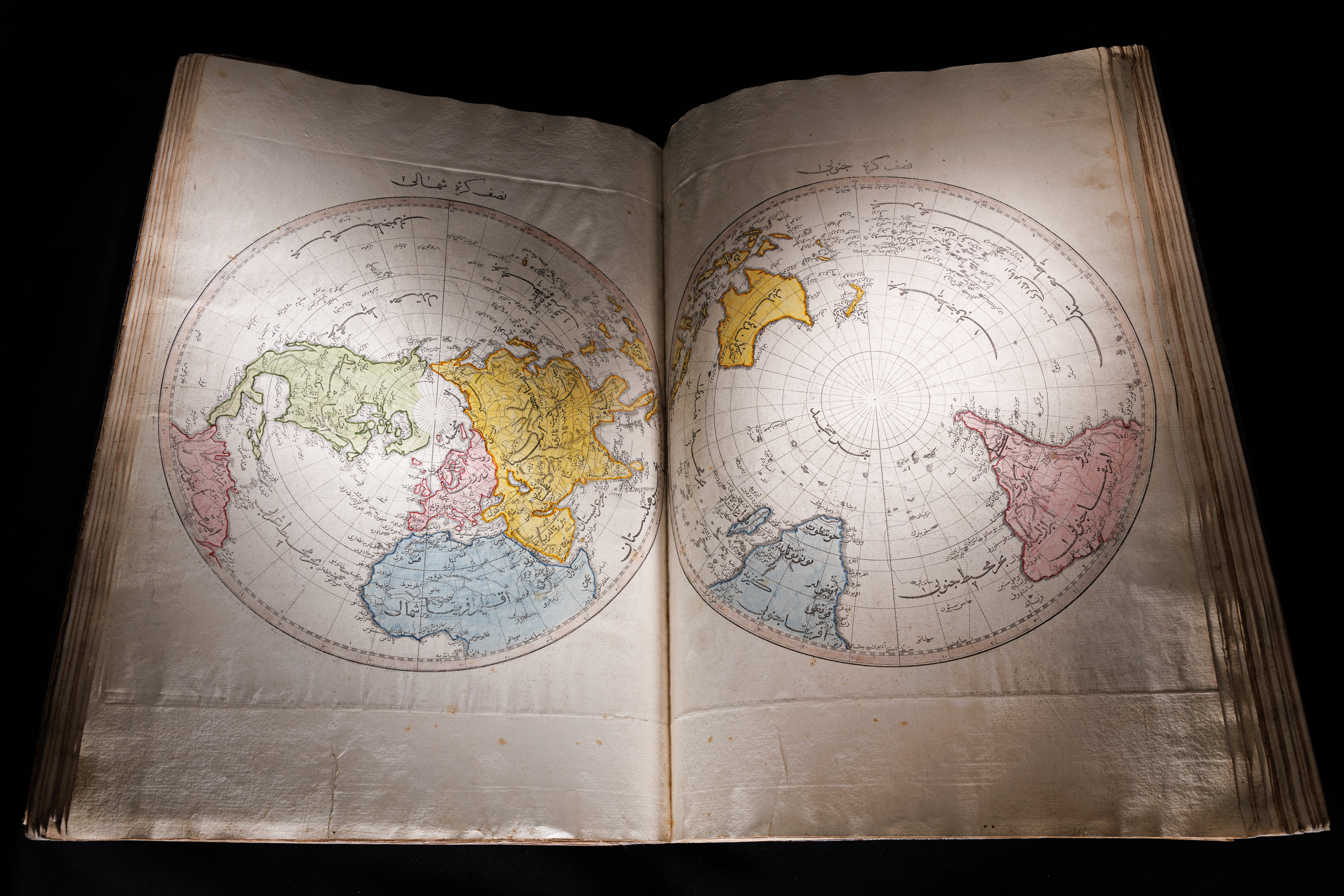
Scholars from post-secondary institutions across Canada and the United States recently journeyed to McMaster for a conference which unveiled the Cedid Atlas Tercümesi, newly acquired by McMaster University Libraries.
The extremely rare book is a complete copy of the first atlas printed in the Islamic world using Western European cartographic conventions. Myron Groover, archives and rare books librarian with the William Ready Division of Archives and Research Collections, says there are several elements that make this acquisition unique.
“Producing this atlas was a technically sophisticated and highly complex process,” said Groover. “Its making required all of the map plates, which are derived from Western European originals, to be painstakingly re-engraved. This involved adding totally new ornamentation including calligraphic captions and legends in Ottoman Turkish, a Perso-Arabic script which fell out of wide use in the early 20th century, and the resulting prints were then coloured by hand.”
The atlas was assembled in Istanbul, capital of the Ottoman Empire, in 1803-04 as part of a military and social reform program called the Nizam-i Cedid or “new system,” instituted by Sultan Selim III. Printed under the auspices of the newly established Imperial School of Military Engineering, with plates originally engraved in Vienna, the book was an attempt to bring this reform movement to life in a physical object. The resulting world atlas, though based on European maps, was distinctly Ottoman.
The university libraries became owner of the only copy of the atlas in Canada when it acquired the book in April 2023. Since only 50 copies of the book were ever produced, and very few complete copies are known to survive—some estimates range as low as 10—the acquisition of this book by McMaster represented an extremely scarce opportunity to bring a complete copy into public ownership.
“For the first time, as a direct result of this acquisition, the extensive opening essay of this work, originally written by the important Ottoman diplomat Rāif Maḥmūd Efendi, is being translated into English,” said Groover. “This will open the text up to a global scholarly audience that would not previously have had any real opportunity to engage with the substance of this work.”
Hearing of the acquisition piqued the interest of Virginia Aksan, professor emeritus of history in McMaster’s Faculty of Humanities, whose field of expertise is the 18th century Ottoman Empire. She led the creation of the McMaster-hosted conference “Putting the Ottomans on the Map”, to give academics from other institutions the opportunity to see an original copy of the atlas and to engage in discussion about the Ottoman Empire.
“The whole question of what the Ottomans contributed to imperial civilization is what maintained my interest in the atlas,” said Aksan. “I saw hosting this conference as an opportunity to pull together junior and senior scholars, to see how they were addressing that particular question, and it worked brilliantly.”
The attendees spent a day and a half sharing presentations and papers focusing on the Ottoman Empire and engaging in thought-provoking discussions on a wide range of subjects such as knowledge transfer, the ethnographic gaze, nomads, tribalism, Eurasia, boundaries, and frontiers. Participants also had the opportunity to explore a special exhibition of other rare books engaging with the history of the Ottoman Empire held McMaster’s archives and research collections.
The celebration of the atlas is not finished. Groover notes that it will feature prominently in another upcoming event on campus. A Mediterranean-themed exhibit called “The Great Sea,” curated by McMaster University Libraries, opens at the McMaster Museum of Art in spring 2025.
"The exhibit will explore the human contexts and imaginaries of the Mediterranean from antiquity through to early modernity,” said Groover. “This remarkable atlas will be proudly placed at the heart of the installation.”
